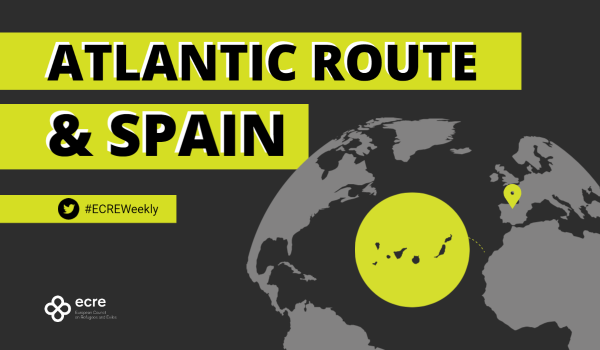Morocco increases the prison sentences of 13 migrants from two years and a half to three years after Melilla massacre. Meanwhile, people continue to take life-threatening journeys to reach Spain despite the death of 11,286 people at the Spanish borders in the last five years. Migrants, in particular those without papers, are exposed to “levels of exploitation close to slavery” in different Spanish regions including the Canary Islands.
The EU’s “committed and strategic partner”, Morocco, toughened the prison sentences of 13 migrants following their attempt to cross the border into the Spanish enclave of Melilla at the end of June, by bringing the sentence from two and a half years to three years, a few weeks after the closure of Spain’s investigation of the Melilla massacre due to lack of “signs of crime”. According to lawyer Mbarek Bouirig, they were prosecuted among other things for “participation in a criminal gang of illegal immigration”, “illegal entry” into Morocco or “violence against law enforcement officers”. These sentences are “unfair” and “have not been justified by logical and convincing arguments” and aim to validate Morocco’s migration policies, said the Moroccan Association for Human Rights (AMDH). Meanwhile, the European Parliament adopted a resolution for the first time in 25 years on the human rights situation in Morocco. Additionally, the EU Border Assistance Mission in Libya with the support of the Spanish national police trained the Libyan border security and management agencies, known for its violence towards people on the move, on “intelligence, particularly on how to gather, analyze & distribute intelligence and information”.
People continue to take risky journeys using different routes to reach Spain including the deadliest route, to the Canary Islands. The NGO, Cominando Fronteras reported the death of 11,286 people at the Spanish borders in the last five years” including 1,272 women and 377 children and 241 boats missing “with no one surviving to tell the tale”. In 2022 alone, 2390 people died on the migratory routes to Spain including 288 women and 101 children, and 1784 people lost their lives on the canary route alone. Structural practices linked to migration control and the border regime is to blame for the loss of lives including delays in conducting search and rescue operations and lack of coordination between countries while prioritising the interception of vessels over their rescue operations. Furthermore, this year started with a few rescue operations and more deaths. On 2 January, Salvamento Maritimo rescued a total of 93 migrants travelling in two boats in waters near the island of Lanzarote. On 10 January, 9 people of North African origin including 3 minors were rescued from two boats near the south of Trafalgar and were disembarked in the port of Saladillo. On 18 January, a boat carrying 90 West African migrants, including two deceased who passed away during the journey, was rescued off Cape Verde near the archipelago of the Atlantic. The vessel, which left the Gambia, had been drifting for 25 days.
Alarm Phone published a report about the labour exploitation of migrants, in particular the undocumented ones who have no access to legal protection, in the Spanish state. The report refers to “levels of exploitation close to slavery” in different regions of Spain including the Canary Islands where families with children and independent adults are forced to accept any job to cover basic necessities. The majority of them are forced to work in the toughest sectors including construction, agriculture and cleaning, noting that around 27% of the agricultural workforce in the Spanish labour market is of foreign origin, while migrants make up a total of only 11% of the country’s population. Moreover, female migrants in Spain report about being subject to different forms of exploitation including sexual harassment and lower salaries.
For further information:
- ECRE, Spain: Government Sticks to Script on Melilla Massacre in Face of Mounting Evidence Disputing it – MPs Call for Marlaska to Resign, Spain and Morocco Continue Strengthening Relations, December 2022
- ECRE, EU Southern Borders: Deaths Off Spain and Morocco as Amnesty Denounces the Failure to Ensure Justice for Melilla Victims, More Than 500 Survivors Disembark in Italy, Frontex Facilitates Interception and Return to Libya, December 2022
This article appeared in the ECRE Weekly Bulletin. You can subscribe to the Weekly Bulletin here.

